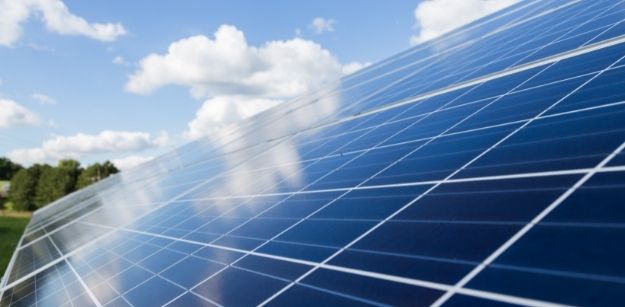As a hotel, resort, or spa centre owner, you want to provide your visitors with the most comfortable and luxurious swimming experience possible. To ensure an overall pleasant experience, no matter if the pool is outdoor or indoor, water temperature is the most crucial element of comfort for all ages.


Plus, a heated pool may be the difference between an excellent online rating and a negative one for commercial businesses. At the same time, for swimming instructors, nothing is more difficult than convincing a hesitant toddler to get into a cold pool.
From seniors, business professionals to youngsters, appropriately heated pools are fundamental for successful commercial swim centres. Therefore, focusing on sustainable pool heating options is well worth the investment.
But first, what is a Solar Pool Pump?
In contrast to electrical pool pumps that rely on grid energy or diesel power, a solar pool pump is powered by electricity generated by solar. Due to decreased operating and maintenance expenses, solar pool pumps are more cost-effective than grid-powered or diesel-powered alternatives.
A solar pool pump works by taking in air, heating it, and then releasing it into the pool water through a titanium heat exchanger. When used to heat a swimming pool in the summer, a heat pump may provide up to five times the absorbed electrical power.
That is, for every 1kW expended, 5kW of heat is produced!
Experts agree that solar pool pumps are an excellent solution for larger pools and commercial swimming pools requiring constant temperature. For a better picture, let’s look at five benefits of commercial applications utilising solar pool pumps.
1. Sustain Perfect Pool Temperatures
Solar pool pumps safely provide a temperature control function that allows users to adjust the water temperature flexibly to meet specific demands depending on the pool’s use.
For example, according to the International Swimming Association, a pool used in swimming competitions must be between 25°C and 28°C and must be kept at that temperature during the event. The heating standards for water polo, on the other hand, are significantly tougher, as the pool water must be within 1°C of 26°C in any direction.
Plus, since bacteria and other organisms thrive in warm water, the maximum recommended temperature for recreational pools is 29°C. As a result, most hotels and public pools keep their water temperatures between 27°C and 29°C.
Therefore, it is not feasible to rely solely on the sun’s strength for pool heating options, even in the summer, due to such varied heating requirements.
As a result, manufactured pool heating is critical! With a solar heat pump as the finest option.
2. Low Costs
A solar pool pump might help a commercial facility save a significant amount of money on pool heating options. As solar pool pumps are less expensive than gas pumps with lower yearly running costs.
This is especially important for aquatic centres and commercial facilities, which are constantly under pressure to keep costs down while achieving the highest performance standards for environmental sustainability. In addition, solar pool coverings help enhance a swimming pool’s energy savings by minimising evaporation and heat loss throughout the night.
3. Reliable Operation
Solar technology is typically made to last, and solar pool pumps are no exception. While some light maintenance is recommended to extend the life of your system, commercial facility owners can be confident that their solar pool pump will survive for at least 10-15 years.
Furthermore, solar pool pumps are a specialty product, and as such, they have been created with care and accuracy being built for the toughest of conditions.
Solar pool heating options typically provide a longer warranty duration than other types of pool heaters, reducing future maintenance problems since they also don’t have any engines or fans to worry about.
Plus, solar pool pumps come in various model sizes, so you are sure to find a solar device that will cater to your pool size with energy efficiency. Solar pool heating options are a tried-and-true source of energy for both home and business applications.
4. Quiet Functioning
A common misconception is that solar pool pumps are noisy and bothersome when swimming. In fact, this is just another solar myth. You will not hear the loud buzzing noises that are common with electric or gas pool heaters. If you like, you may lounge around, relax, and enjoy the peace and quiet in your swimming pool.
5. Easy to Maintain & Install
Solar heat pumps take up little space requiring only a power connection, and can be easily integrated with other renewable energy systems. Although gas and electric pool heaters are less expensive to install, they are more expensive to run and require extra installation work such as drilling.
Regular pool maintenance is one of your obligations as a commercial pool owner to guarantee that your pool remains in great shape for an extended period. A solar pool heating system is ideal if you want a lower-maintenance pool heating option because solar pool heaters are simple to operate and require little upkeep. However, to ensure optimal performance and a longer lifespan, service your solar pool heater on a yearly basis.
How Do I Know if Solar Pool Pumps are Ideal for my Commercial Application?
Many size factors impact a solar pool heating system, such as pool positioning (whether the pool is indoor or outside) and pool water volume.
Solar heating professionals use spreadsheets and computer programs to assess a pool’s particular system demands to ensure the best-sized pool heating options. Hiring a specialist to determine the proper solar pool technology is critical because selecting the correct-sized solar pool pump may save a facility hundreds of dollars in needless costs.
The proper amount of electricity will reduce the overall run time required and minimise your facility’s power costs throughout the season. Ensuring the necessary heat pump capacity is proportional to warming in the morning before the first visitors arrive or when the pool is opened.
For example, if the water temperature decreases by one and a half degrees and there are six hours available to get the water back to the appropriate temperature, the pump must produce 0.25 degrees each hour of heating. A heat pump with an effectual heat output of 13 kW is required for a medium-sized pool of 50 cubic metres (equal to a pool five metres wide, seven metres long, and 1.5 metres deep).
If you are wondering what pool heating options are best for your commercial application, contact your local reputable solar pool pump supplier for expert information. Due to the pool size, the laws involved, and the skill required to deliver efficient heating solutions in highly specific business situations, commercial pool heating necessitates the specialized knowledge of such skilled solar suppliers.



